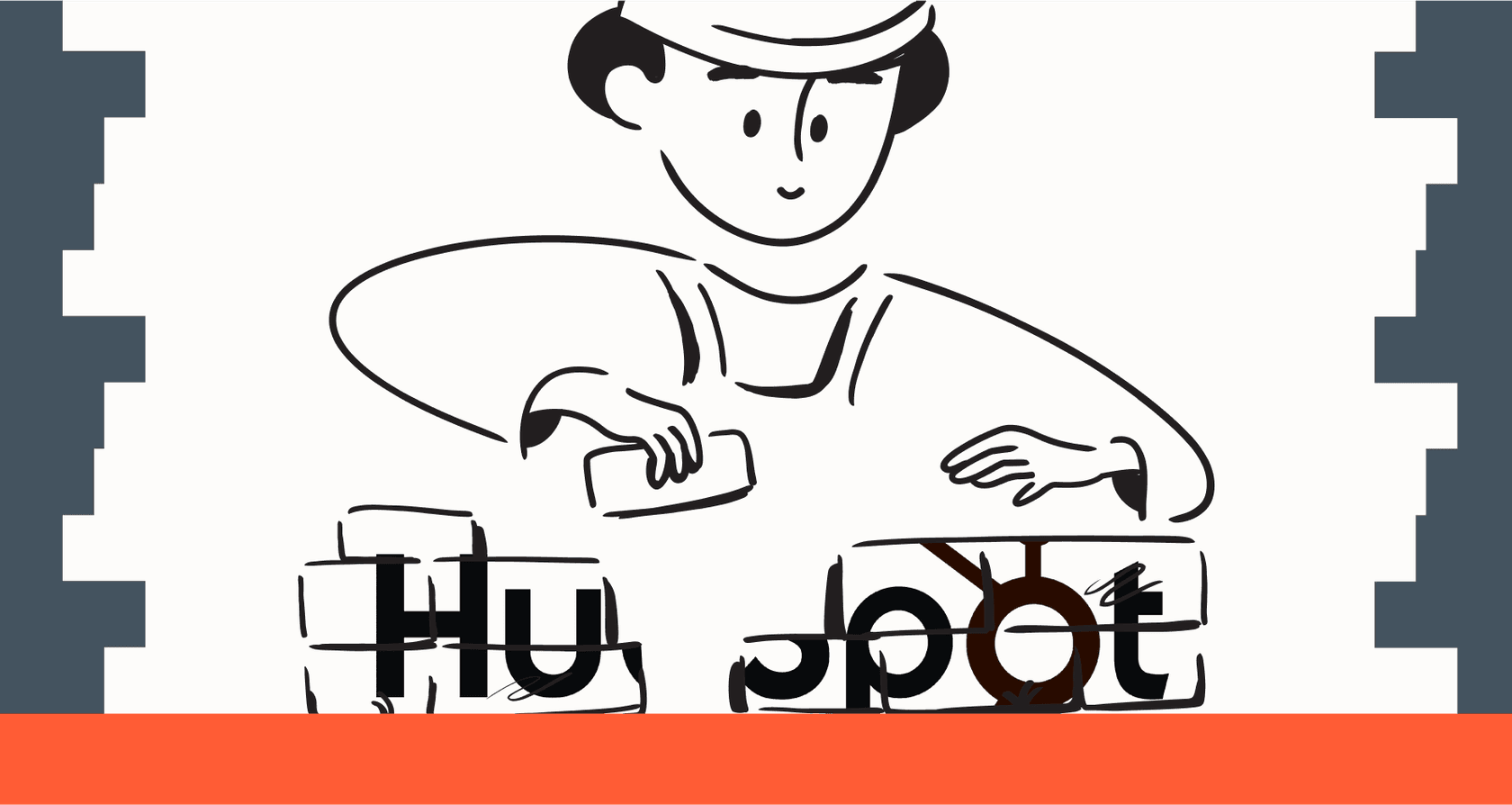HubSpot AI agent overview: Breeze, automation, and use cases

Kenneth Pangan

Katelin Teen
Last edited January 16, 2026
Expert Verified

If you're in the business world, you’ve probably heard about HubSpot's suite of AI tools, branded as Breeze. The star of the show is the HubSpot AI agent, which HubSpot positions as an autonomous team member that can tackle marketing, sales, and customer service tasks.
Because HubSpot is a mature, reliable platform that powers thousands of companies, these agents are built to be robust and dependable parts of your tech stack.
This guide provides a comprehensive look at the HubSpot AI agent: the different types, what they're used for, the investment structure, and how to best implement them. We’ll also show you how complementary tools like eesel AI can work alongside HubSpot to enhance your team's workflow.
What is a HubSpot AI agent?
A HubSpot AI agent is an AI tool that lives inside the HubSpot platform and is built to handle complete workflows on its own. It's a central piece of the larger Breeze ecosystem, which includes the Breeze Copilot (an AI assistant) and Breeze Intelligence (a data tool).
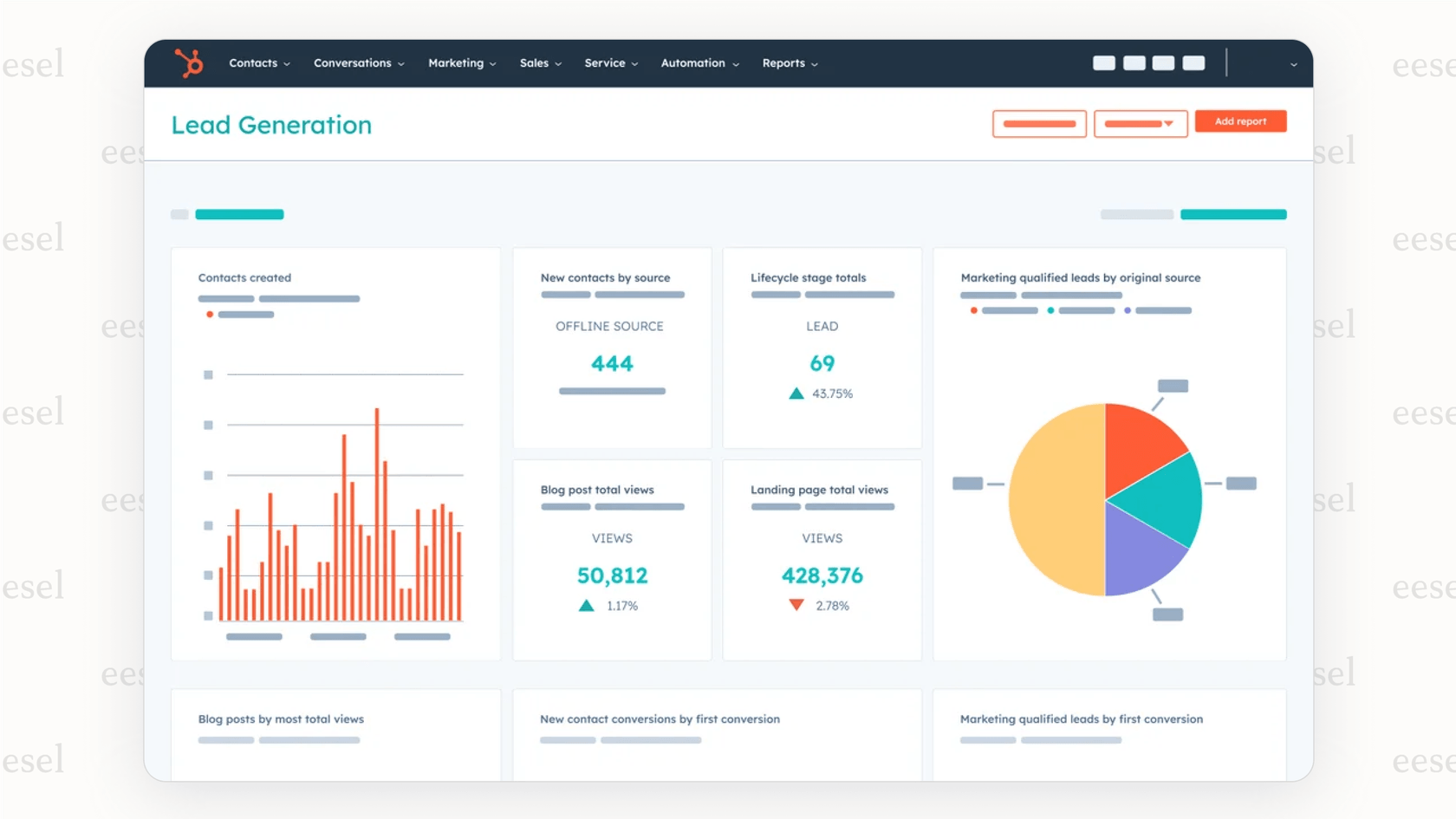
The main idea, which HubSpot highlighted at its INBOUND 2024 event, is to create a professional network for AI agents where you can find and deploy AI helpers for specific jobs. Think of them less like basic chatbots and more like specialized digital employees. They're designed to manage multi-step jobs, like qualifying sales leads or resolving support tickets, freeing up your human team for high-value strategic work.
A breakdown of the main HubSpot AI agent types and use cases
HubSpot has introduced agents tailored for marketing, sales, and service teams. Each one is designed to automate common tasks within the integrated HubSpot platform.
HubSpot AI agent for marketing
- Content agent: This agent is meant to help your creative team produce more content efficiently. You can feed it reference files, and it will generate drafts for blog posts, landing pages, and case studies in your brand's voice. It also handles standard pre-publishing steps, like writing meta descriptions and adding internal links.
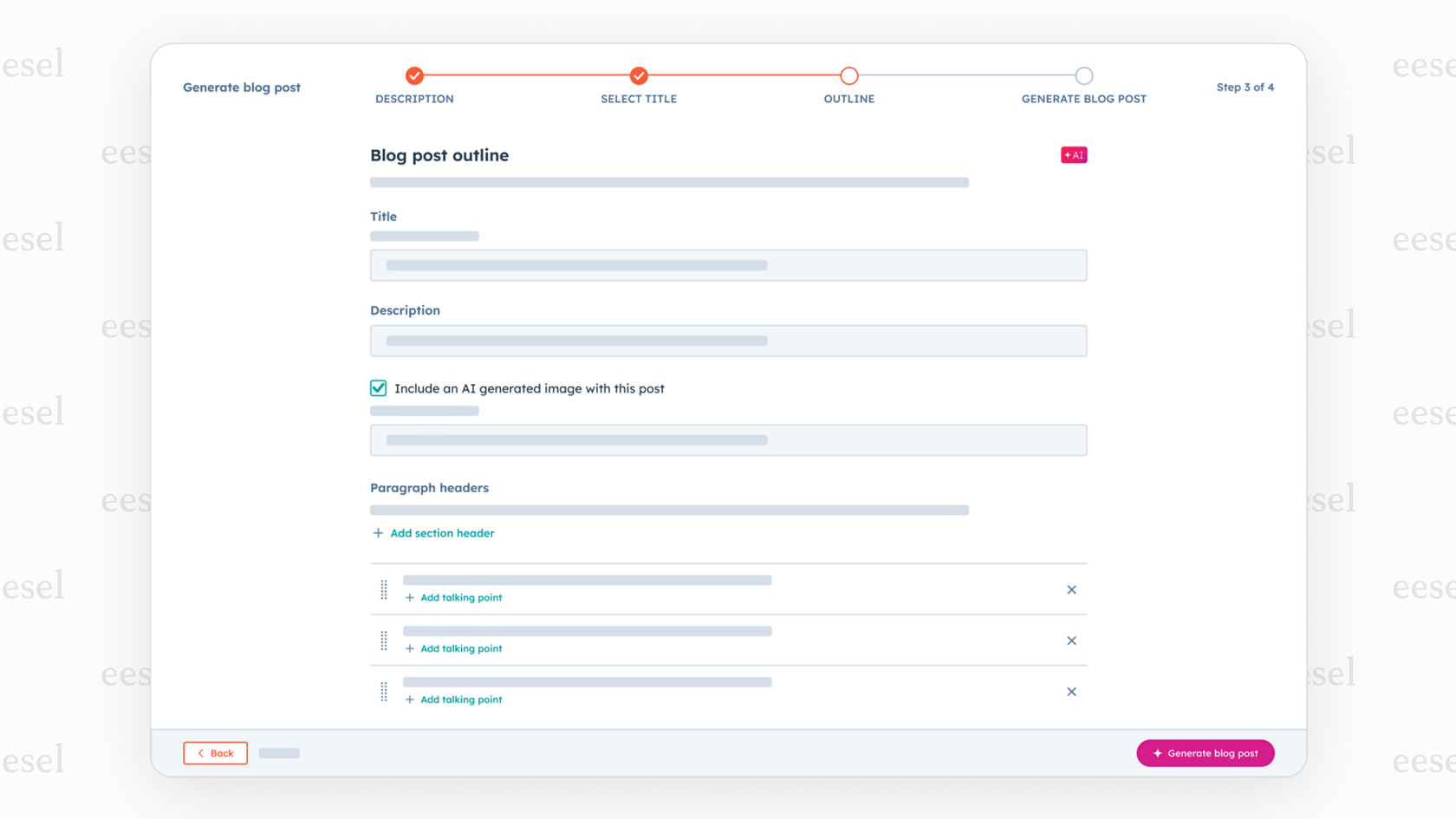
- Social media agent: This one acts as an AI social media manager. It’s designed to look at performance data and then create and schedule social posts. The goal is to help your team maintain a steady online presence while HubSpot's platform handles the heavy lifting of crafting updates.
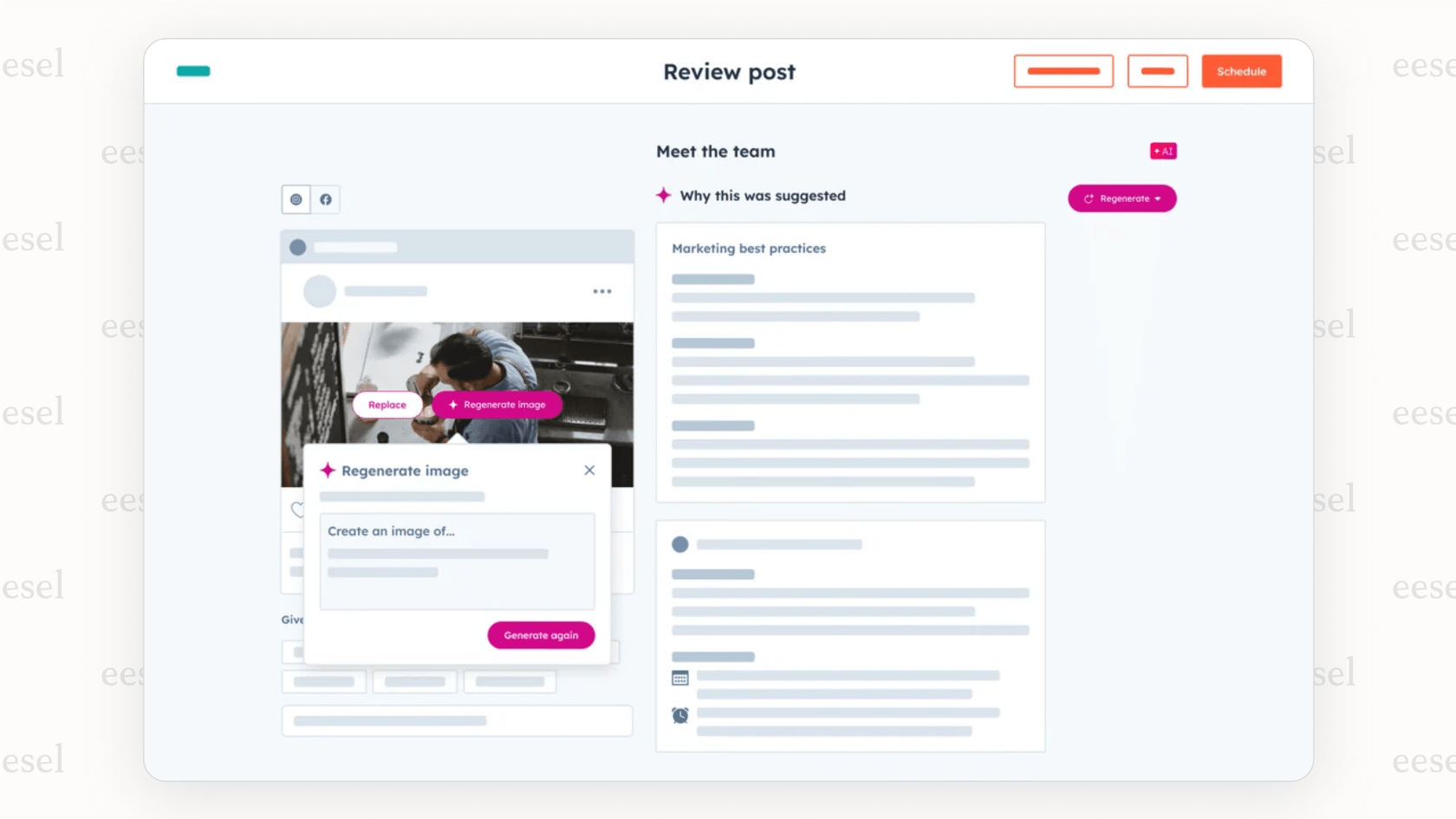
A quick note on these marketing agents: they are exceptionally powerful for creating content inside HubSpot, pulling performance data directly from your CRM to ensure alignment with your HubSpot campaigns.
HubSpot AI agent for sales
- Prospecting agent: This agent acts like an AI-powered sales development rep (SDR). It digs into target accounts, uses your predefined selling profiles to personalize outreach, and can engage with leads to help fill your sales pipeline efficiently.
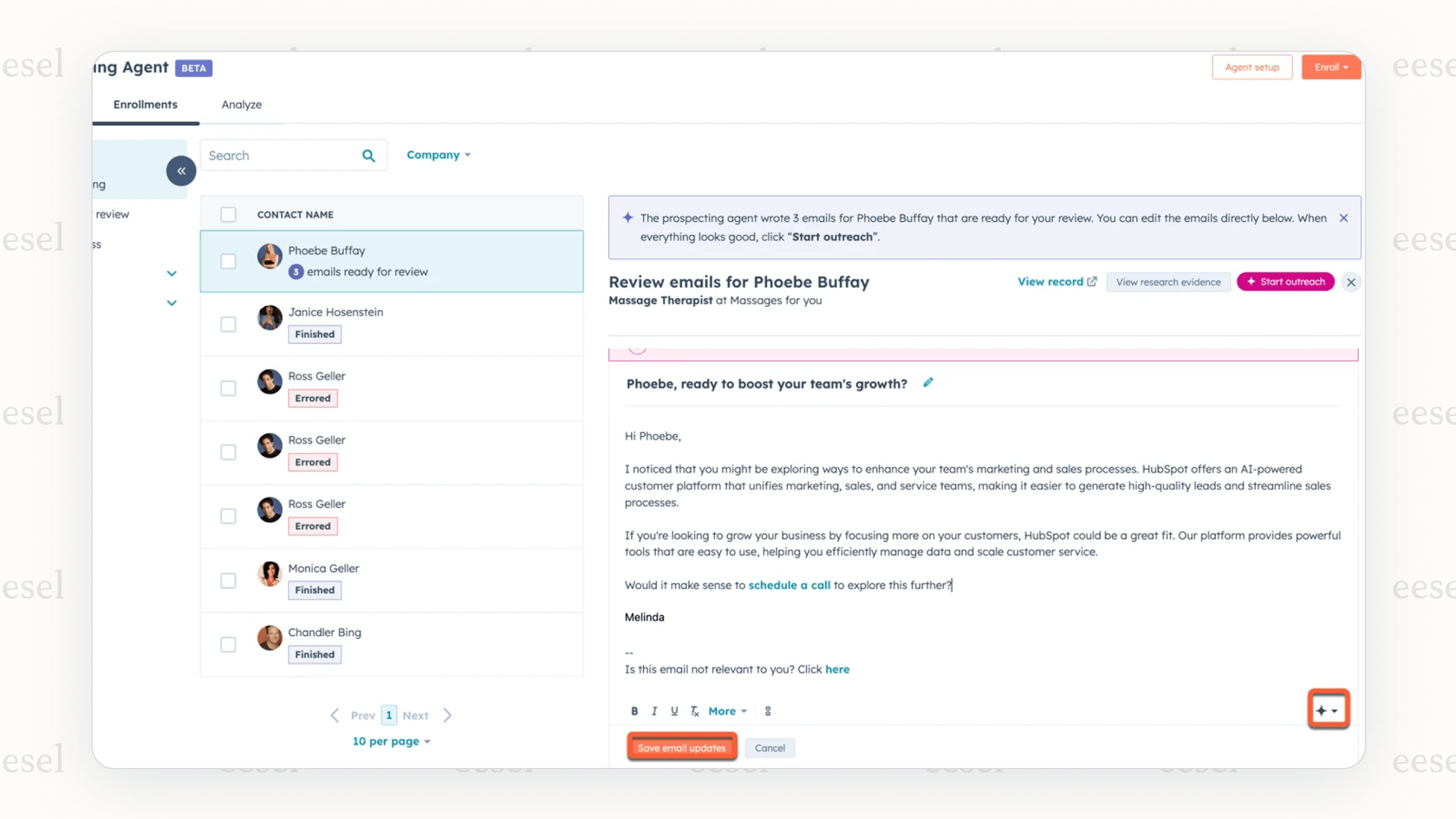
- Company research agent: This tool automates the important work of pre-call research. It generates detailed reports on target companies by pulling info from public sources. Your sales reps can ask it specific questions, like, "Does this company sell a subscription product?" to get fast, reliable answers.
Here’s a simplified look at how the Prospecting Agent’s workflow is meant to operate:
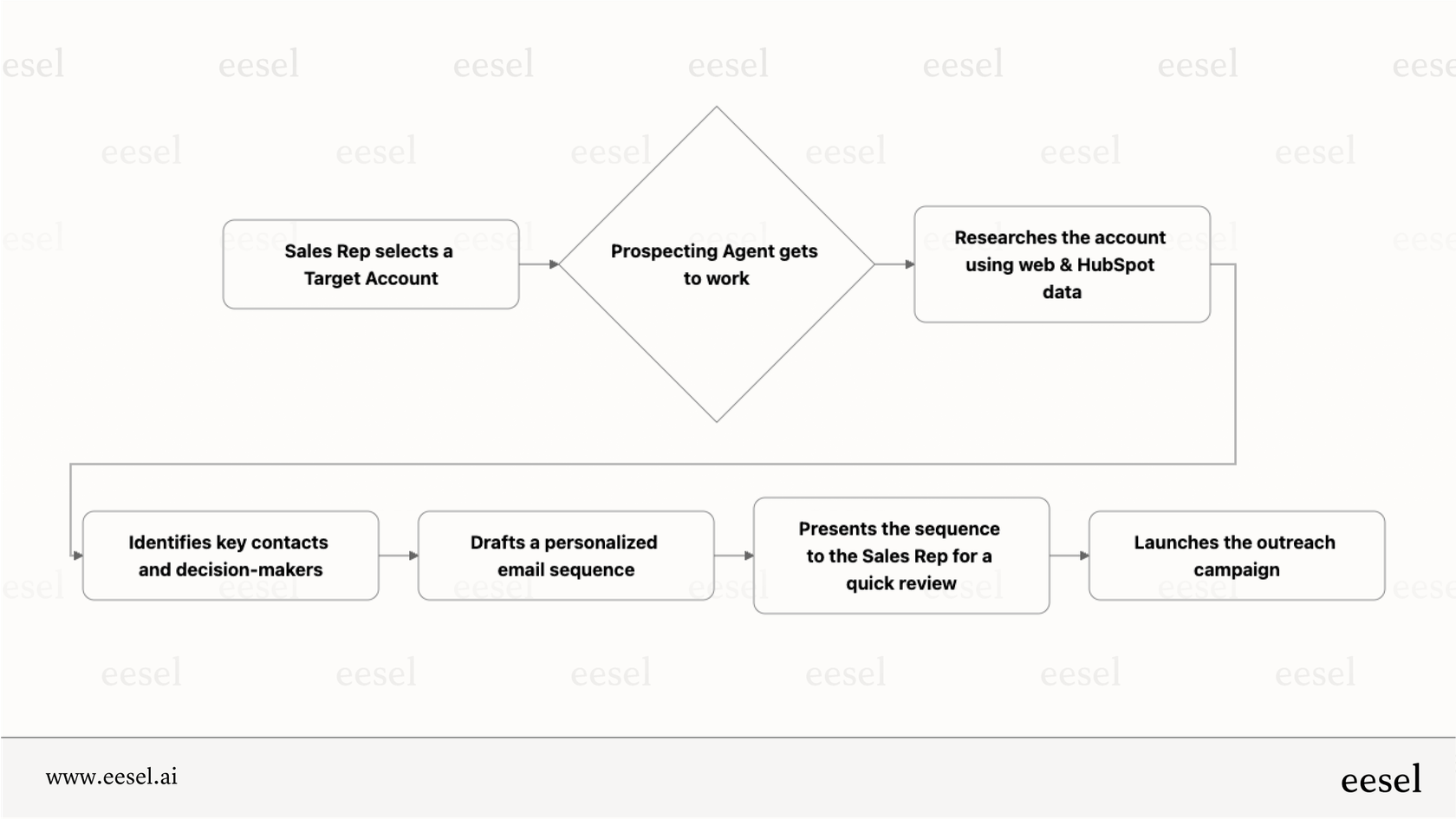
HubSpot AI agent for customer service
-
Customer agent: This is your 24/7 front-line support specialist. It's trained on your website and knowledge base content to answer customer questions around the clock. HubSpot notes that the agent can resolve a significant portion of all support tickets and works across email and WhatsApp.
-
Knowledge base agent: This agent partners with the Customer Agent to improve your self-service options. It spots gaps in your knowledge base by looking at incoming support tickets and then drafts new help articles to keep your documentation current.
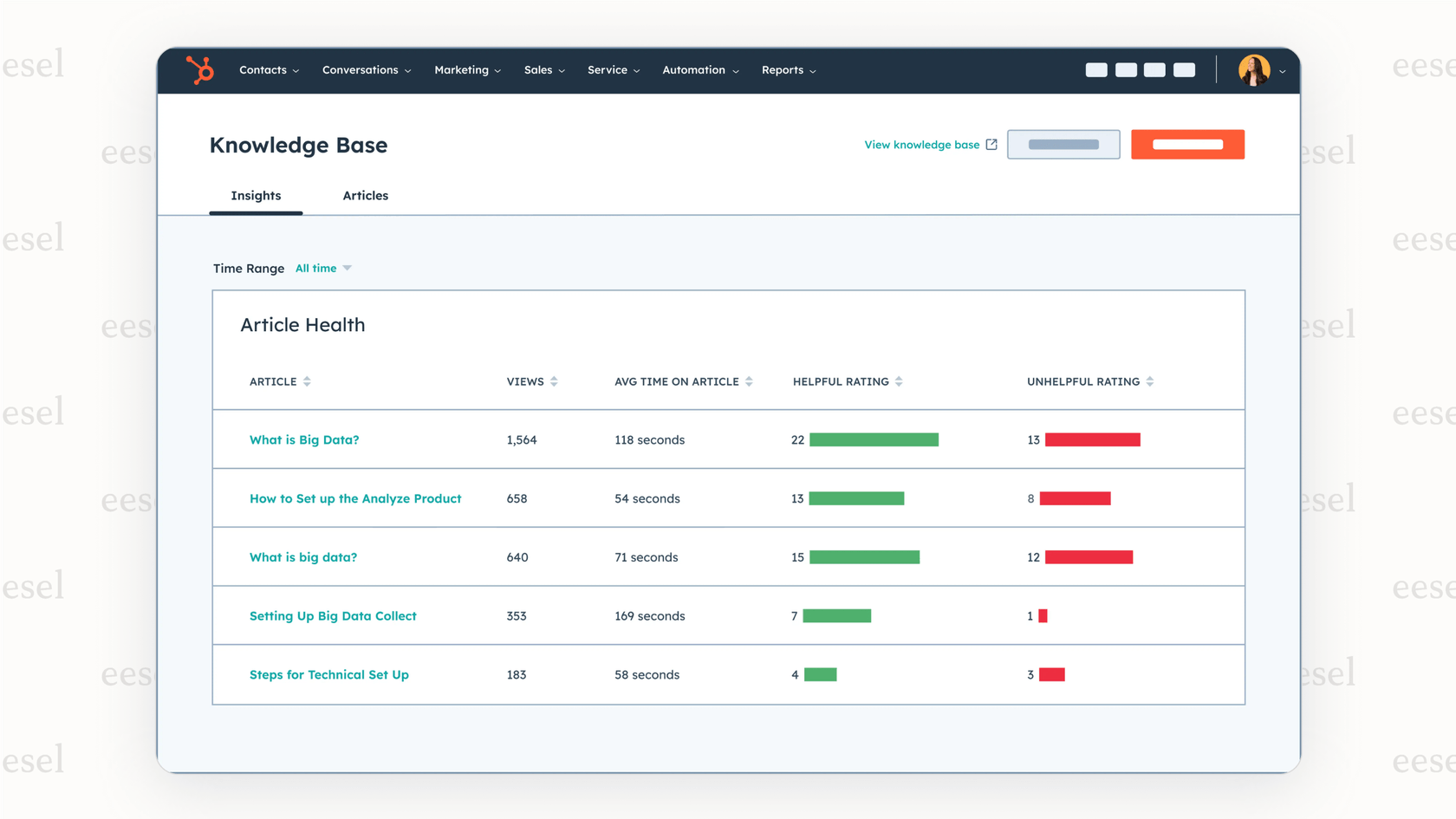
Because these service agents focus on your HubSpot-hosted content, it ensures they provide accurate information based on your official brand guidelines. For teams using a wider variety of internal docs, complementary tools like eesel AI can help bridge the gap.
The investment for using a HubSpot AI agent
Getting your hands on HubSpot's AI agents is an investment in your company's growth. HubSpot offers tiered plans to ensure that the AI features match the needs of professional teams.
Professional and Enterprise subscriptions for a HubSpot AI agent
HubSpot's AI agents are available as part of their Professional and Enterprise plans. These tiers are designed for businesses ready for a more mature, reliable platform. According to industry analysis, the Professional Customer Platform plan is a premium offering that provides enterprise-grade value for scaling organizations.
Flexible credits for the HubSpot AI agent
HubSpot uses a credit system for many of its AI features, particularly those under the Breeze Intelligence umbrella. This tiered approach allows you to adjust your usage as your business needs grow. It ensures that as you launch more successful marketing campaigns or manage more support traffic, the platform scales alongside you.
| Provider | Pricing Model | Key Takeaway |
|---|---|---|
| HubSpot AI Agent | Integrated monthly subscription (Pro/Enterprise) with flexible usage credits. | A comprehensive, enterprise-grade investment for growth. |
| eesel AI | Simple, interactions-based monthly plans. All core products included. | A complementary and transparent way to expand your AI capabilities. |
Key considerations for implementing a HubSpot AI agent
While HubSpot's agents are powerful within their environment, it's helpful to consider how they fit into a tech stack that might include other specialized tools.
Focusing your knowledge within HubSpot
A HubSpot AI agent is designed to be a master of the information that lives within the HubSpot platform. This focus is a benefit for companies that want a single source of truth for their CRM and customer data.
However, many modern businesses also have knowledge in other areas:
- Solved support tickets in other help desks.
- Technical docs and project plans in wikis or Google Docs.
- Day-to-day problem-solving that happens in chat tools.
HubSpot's agents are built to excel with your HubSpot data, ensuring a reliable and unified experience. If you have significant data elsewhere, you might consider how to best integrate those sources.
The benefits of a unified HubSpot platform
HubSpot's strategy is to provide a comprehensive, all-in-one platform. By moving your sales, marketing, and service functions into their ecosystem, you gain the full benefit of their integrated AI. This leads to a simplified tech stack where everything works together perfectly.
For teams that prefer a modular approach, a complementary tool like eesel AI works alongside HubSpot. It connects to your various systems, unlocking their value without requiring you to centralize everything in one place.
eesel AI: A complementary tool for HubSpot users
While HubSpot provides a powerful core platform, eesel AI is a flexible AI layer that can connect to HubSpot and your other essential business apps. It is designed to work with the tools you already use, acting as a helpful addition to your HubSpot setup.
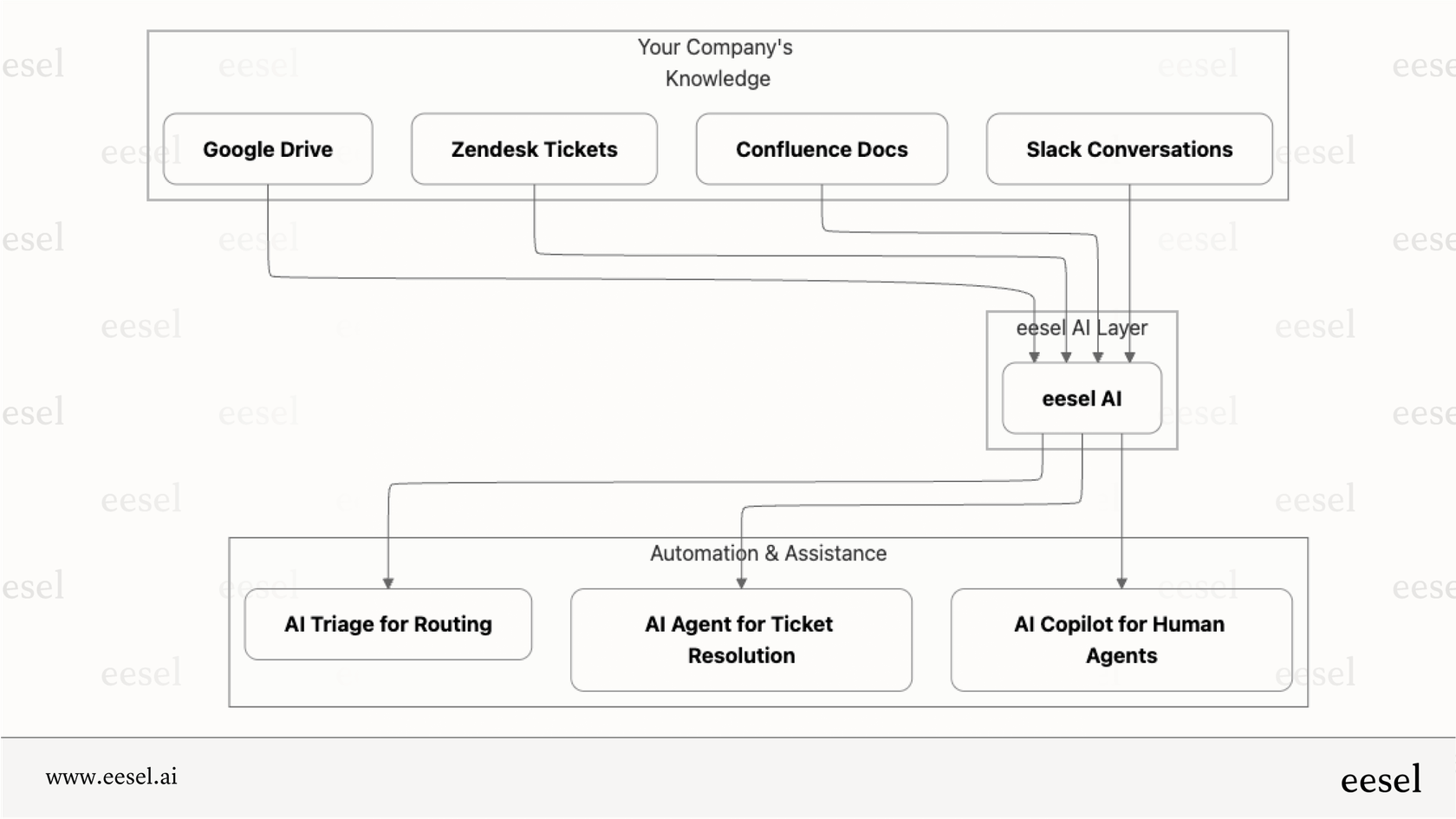
- Expand your data access: eesel AI can plug into your HubSpot setup along with other tools like Zendesk, Confluence, and Slack. It allows your AI to pull from a wider range of company knowledge.
- Simple & transparent plans: eesel AI offers straightforward, interactions-based plans that include the AI Agent, AI Copilot, and AI Triage. It’s a transparent way to scale your AI capabilities.
- Full-stack support automation: eesel AI offers a suite of tools that can enhance your HubSpot customer support experience, handling everything from ticket resolution to automated triage across all your apps.
| Feature | HubSpot AI Agent | eesel AI |
|---|---|---|
| Integration Philosophy | A powerful native feature of the HubSpot platform. | A complementary layer that connects your various tools. |
| Primary Data Sources | HubSpot CRM data and brand-approved web data. | Your company’s knowledge across all apps (Zendesk, Confluence, Slack, etc.). |
| Primary Use Case | Unified sales, marketing, and support automation. | Specialized support and internal help automation across your tech stack. |
| Pricing Model | Tiered professional subscription + flexible credits. | Transparent, interactions-based plans that work alongside your existing stack. |
Making the right choice for your HubSpot AI agent strategy
The HubSpot AI agent is a strong choice for businesses that value an integrated ecosystem and want a mature, trusted platform to power their growth. If your team is already using HubSpot, these agents offer impressive native automation that is built to scale.
For companies that use a diverse range of tools, incorporating a flexible AI layer like eesel AI is a practical way to enhance your automation. It respects your current setup while tapping into the full breadth of your company's knowledge.
Ready to see how AI can empower your team? Sign up for a free trial of eesel AI or schedule a demo with our team to see how it can complement your HubSpot environment.---
Frequently asked questions
HubSpot offers its AI agents as part of its Professional and Enterprise plans, which provide high-level features for growing businesses. Many features use a credit system, allowing you to scale your AI investment based on your actual usage.
The agent is specialized to work seamlessly with data within the HubSpot platform. This focus ensures that your AI is trained on your most relevant CRM data and brand-approved content for maximum reliability.
Think of it as an autonomous digital team member. A HubSpot AI agent is designed to manage entire multi-step workflows on its own, like qualifying sales leads or resolving tickets, which provides a high level of operational efficiency.
Using HubSpot's AI agents allows you to benefit from a unified platform where marketing, sales, and service data work together perfectly. This integrated approach centralizes your business functions, making it easier to manage your customer relationships in one place.
It is an excellent fit for scaling businesses and larger enterprises. The availability of these tools on Professional and Enterprise plans provides powerful features that help growing businesses compete at a higher level.
The agent is trained automatically on your HubSpot knowledge base and website content. This streamlined setup ensures the agent stays aligned with your official documentation and brand voice.
Share this post

Article by
Kenneth Pangan
Writer and marketer for over ten years, Kenneth Pangan splits his time between history, politics, and art with plenty of interruptions from his dogs demanding attention.


